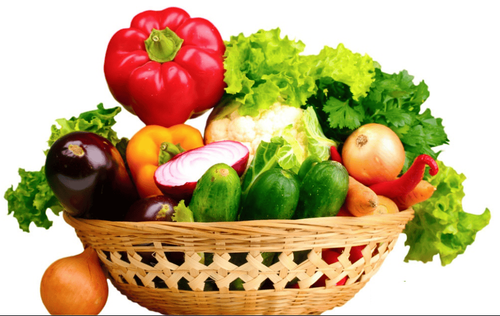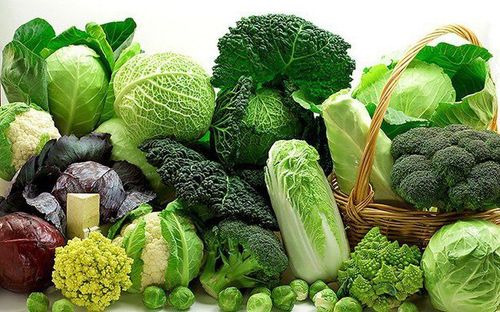This is an automatically translated article.
Vegetables are a group that provide many vitamins and fiber needed for the body every day. At any age, everyone needs to eat a group of vegetables and fruits, so they always need them in the family tray. So how many vegetables should you eat each day? Let's find out in the following article.
1. Benefits of eating vegetables every day
Improve nutrition Fruits and vegetables are rich in vitamins, minerals, and fiber to help provide trace elements, support the body's healthy development, enhance resistance, and avoid the risk of disease at any age.
Dark green vegetables and leaves and yellow and red vegetables are a rich source of vitamin A, which helps keep eyes bright, increases resistance, provides iron to avoid anemia caused by iron deficiency. , especially helps children's bodies to grow and develop best.
Besides, fruit and vegetables also contain a lot of fiber and antioxidants, which help improve health and prevent chronic non-communicable diseases.
Feeding your baby vegetables and fruits will provide the most complete and best nutrition. Therefore, when children 6 months and older start eating solid foods, mothers should grind vegetables to get water so that children can be provided with fiber and nutrition from these foods.
Helps reduce obesity Fruits and vegetables are high in fiber but low in fat and calories. Therefore, eating vegetables will not cause weight gain, avoiding the risk of overweight and obesity.
Trắc nghiệm: Muối trong thực phẩm, natri, huyết áp và sức khỏe của bạn
Muối, natri là chất khoáng cần thiết cho cơ thể để duy trì hoạt động ổn định. Tuy nhiên, chế độ ăn thừa muối có nguy cơ cao dẫn tới các vấn đề sức khỏe nghiêm trọng. Cùng làm bài trắc nghiệm sau đây để hiểu hơn về những ảnh hưởng của các khoáng chất này tới huyết áp và sức khỏe bạn thế nào nhé.
Nguồn tham khảo: webmd.com

2. What vegetables are good for health?
Any vegetables are good, providing many vitamins for the body. Therefore, you can choose and eat a variety of different vegetables every day to change your taste and eat better.
Here are some typical vegetables that can be used for reference if the body is lacking in nutrients and needs to be supplemented:
Iron deficiency Iron deficiency causes anemia, fatigue affects the quality of study.
Iron is abundant in beans, spinach, amaranth, spinach, bean products.... So eat a lot of these vegetables to supplement iron for the body.
Potassium deficiency Potassium has an important role in metabolism, participating in the pH regulation buffer system of the cell.
To supplement potassium minerals for the body, should eat a lot of vegetables such as potatoes, tomatoes, radishes, fruits, soybeans, oranges, tangerines in daily meals to help laxatives, reduce cholesterol in blood.
Rich in fiber Any vegetable is rich in fiber. Although fiber has no nutritional value, they have a laxative effect, stimulate the activity of the large intestine, avoid constipation, increase digestion as well as participate in the elimination of oxidation products. toxic substances out of the body. Thereby reducing the risk of colon cancer, blood cholesterol, cardiovascular disease, blood sugar regulation.
Rich in magnesium Magnesium is a mineral that helps reduce stress on the brain and nerves.
Magnesium can be provided by eating green leafy vegetables, grains, beans, sunflower seeds, pumpkin seeds, squash, watermelon,...
Rich in vitamin C Vitamin C helps synthesize collagen, anti-oxidant, increase resistance as well as the ability to absorb trace minerals.
Vitamin C is abundant in cabbage, sweet potato, sour fruits such as grapefruit, oranges, tangerines, guava,...
3. How many vegetables do you eat each day?
Besides the question "what vegetables are good for health", "how many vegetables to eat every day" is also interested by many people. To meet the nutritional needs of vegetables and fruits, according to the World Health Organization, an adult should consume at least 300 grams of green vegetables and 100-200 grams of fruit daily. against the risk of chronic nutrition-related diseases.
Children also need to be trained to gradually eat vegetables with different and appropriate processing methods. Depending on the age of the child will need to consume different amounts of fruits and vegetables.
An appropriate child fruit serving would include one medium piece of fruit, 2 small pieces or a bowl of chopped fruit. A child-friendly serving of vegetables is about the size of a medium-sized potato, 60 grams of cooked vegetables.
We can absolutely eat more vegetables and fruits if we want, because the group of vegetables and fruits is rich in vitamins as well as fiber, easy to digest, reducing the risk of constipation.
People who are overweight, obese, or have blood sugar disorders, or diabetes should limit their intake of sweet and high-energy fruits such as bananas, mangoes, jackfruit, litchi,...
If you have questions, About choosing foods and vegetables to eat every day, consult your doctor as well as a nutritionist for a scientific and nutritionally complete diet.
Please dial HOTLINE for more information or register for an appointment HERE. Download MyVinmec app to make appointments faster and to manage your bookings easily.













